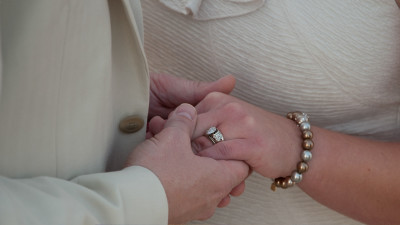What is the cause of 'Missophonia' who suffers from typing and breathing in response to 'sounds'?

by
Many people are offended by noises such as the noise of others, but the heart rate is increased by listening to specific sounds such as noises and typing sounds, causing intense aversive feelings. Some people are called ' Missophonia '. Researchers have deepened their understanding through experiments and the like as to why such people of Misophonia show rejection to specific sounds, according to the sciences of Live Science .
Misophonia: Why Do Some Sounds Drive People Crazy?
https://www.livescience.com/65669-what-is-misophonia.html
People who respond to MISOFONIA respond mainly to humming, muffled sounds, typing sounds, sounds of breathing, and other everyday sounds that other people make, such as conversations. People living in Misnonia who often feel negative emotions, anger, and anxieties due to natural noise are often unable to gain the understanding of their surroundings.
'Many people doubt whether misophonia is really an obstacle,' said Damian Dennis, a psychiatric professor at the University of Amsterdam, saying, 'If you make a noise in the cinema, it makes you bother and frustrated' “The symptoms of MISOFONIA are difficult to distinguish from negative emotions to general unpleasant sounds from outsiders.
But Dennis argues that misophonia should be recognized as a serious failure. 'The people in Misofonia are really suffering. We have seen patients who have been divorced or quit work because of their aversion to sound,' said Dennis. However, among medical personnel, the degree of recognition of misophonia is low, and doctors who do not know misophonia sometimes give a diagnosis such as autism or ADHD to children who show excessive reactions to sound.
While many psychologists are aware of the people who are suffering in Misofonia, the current state of research about Misofonia is not very advanced. 'I am convinced of the existence of mysophonia from my research and interactions with patients,' said Ali Mattu, associate professor of medicine psychology at Columbia University. I do not know what causes the problem.

by
People who are studying about misophonia think that the brain may be having trouble processing sound, even though the detailed mechanism is unknown. Based on this hypothesis, Denis and his colleagues conducted experiments on 21 Misofonia patients and 23 healthy subjects.
The subjects watched a movie that included sounds that caused symptoms of misophonia such as a tongue-slip, and a movie that did not include unpleasant sounds, and the research team monitored the brains of the subjects. As a result, different reactions were triggered between the two groups only for movies that contained offensive sounds.
Patients in Misophonia felt anger and hate when they heard unpleasant sounds, and their heart rate jumped. In addition, from the results of brain scan, it has been found that patients with Misfonia have a strong response in the area called ' Saliency Network ' that elicits attention from the stimuli received by the sense organs to the surrounding prominent ones. From this result, it is suggested that 'the patients in Misophonia may perceive a certain sound as a very distinctive thing because the connection in the brain area is different from the general public, and may cause fear or anxiety'. It has been.

by
Research on misophonia has only just begun, and Mattu says, 'The biggest problem in treating misofonia is that the criteria for misofonia are not clear.' While some Misophonia patients complain of anxiety, some patients complain of anger to the sound, and the situation is becoming more complex due to the diversity of symptoms.
Therapists who treat misophonia use various techniques based on the emotions triggered by the sound. At the time of writing, Live Science says that it is the most effective treatment to understand what emotions a patient has and to use cognitive behavioral therapy.

Related Posts:
in Science, Posted by log1h_ik







